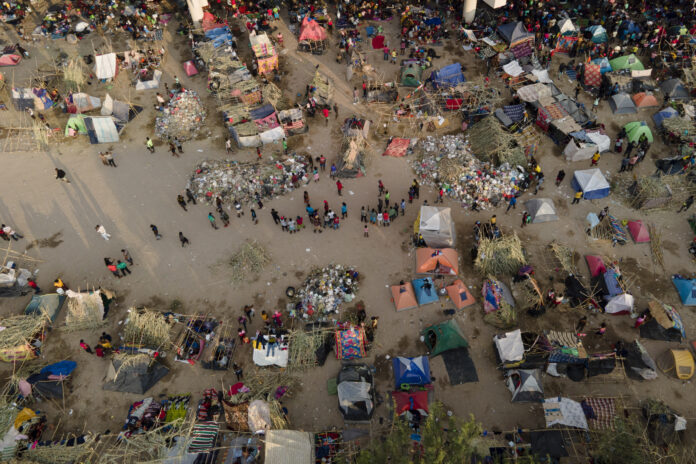
The Biden administration last week issued an urgent call for U.S. citizens in Haiti to get out of the country if they can — while they can. A State Department travel advisory encouraged people to leave Haiti as soon as possible, as there is no assurance that commercial airline flights will continue because of deteriorating conditions and security in the country.
A State Department official cited “kidnapping, crime, civil unrest, and COVID-19,” noting that Americans often are the target of the kidnapping and crime.
The problems stem from a nasty combination of events that include the Haitian president’s assassination in July, followed by a devastating 7.2-force earthquake the following month. Criminal gangs now are fighting for control of the Caribbean nation that is considered the poorest in the Americas. The gangs have disrupted the flow of goods and intercepted fuel supplies. Banks and businesses have shortened business hours and many grocery store shelves are empty, prompted the United Nations and other international groups to advise anyone who stays in the country to stock up on emergency supplies of water, food and other necessities.
These are the conditions to which our Homeland Security Department sent more than 5,500 Haitian refugees who had arrived at our border in September. Most of those migrants had left the country years ago, and had been living in South America.
Who knows what fate met those deportees who were sent to a place that is broken physically and politically and no longer was their home.
Certainly, the migrants overwhelmed our immigration system. DHS reports some 30,000 Haitian nationals had arrived here, including some 15,000 who had assembled beneath the Acuña-Del Rio International Bridge at Amistad Reservoir. In addition to the 5,500 deportations, some 5,000 were brought into this country for processing and about 8,000 were returned to Mexico. Officials reportedly could not account for the rest of the people.
Haitian President Jovenel Moise was assassinated in July. The earthquake hit in August. Obviously, administration officials knew the conditions that existed in Haiti when the deportations began, making them hard to justify. Neither is sending thousands of people back to a fate that is unknown but probably bad, simply because we want to get rid of the problem.
Another wave of Haitian expatriates, reported to be 60,000-80,000 strong, is working its way here through Colombia, Central America and Mexico. We know they’re coming. DHS already is rebuilding one of the few good features of the migrant protection protocols that stranded thousands of migrants in Mexico, temporary courtrooms that allow virtual hearings that could speed up their asylum reviews, in the Rio Grande Valley and elsewhere. We hope that by the time the people arrive, officials have developed a more efficient process that renders decisions quickly and fairly.
Yes, the masses assembling at our borders are problematic, but we can’t ignore their basic human rights simply because respecting their humanity makes our job difficult.



